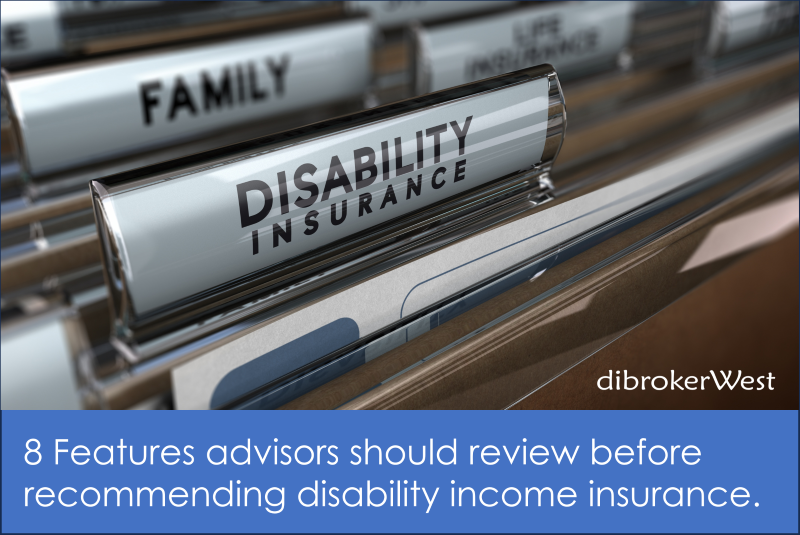
Selling DI

Disability Income Insurance vs. Life Insurance: Why Your Client Needs Both for Complete Financial Protection
When most people think about personal insurance, life insurance is usually the first thing that comes to mind. It feels logical: if something happens to you, your family needs to be protected. And that is true. But there is another financial risk that is far more likely and often overlooked: the risk of losing your […]

10 Disability Insurance Lead Nurturing Campaigns for Advisors
These 10 disability insurance lead nurturing campaigns are the most effective way for Advisors to build trust, prove their expertise and convert prospects into loyal clients.

8 Features Advisors Should Review Before Recommending Disability Income Insurance
Selling disability income (DI) insurance is more than placing a policy—it’s protecting your client’s most valuable asset: their paycheck. Just like helping a client choose between “must-have” and “nice-to-have” features when buying a car, you need to guide them through which DI features will matter most for their financial security.

Why Life and Disability Insurance Leads Don’t Convert
Attracting a lead is just the beginning — converting that lead into a client is where the real challenge lies, especially in life and disability insurance sales. Learn why sales leads fall through the cracks and how to convert them.

7 Proven Tips for Cold Call Success
Cold calling isn’t dead—it’s just evolved.
While some may view outbound calling as outdated or intrusive, the truth is, a well-executed cold call remains one of the most effective ways to engage new prospects and build your pipeline. But the key lies in how you approach it.

Making Disability Insurance Conversations Count
We can all agree that protecting a client’s income in the event of illness or injury is a foundational part of a sound financial plan. Yet, disability insurance (DI) remains one of the most under-discussed and misunderstood types of coverage.
So why aren’t more financial professionals having consistent, productive conversations about income protection? Why don’t more clients understand its value—and why aren’t more policies being sold?

Disability Insurance and Mental Nervous Disorders
When clients apply for disability income (DI) insurance, one of the most frequently misunderstood underwriting topics is how mental nervous disorders are treated. At dibrokerWest, we work closely with advisors to simplify this part of the process—helping you navigate how these conditions impact underwriting and policy design.

Disability Insurance Funded by Buy/Sell Agreements
When it comes to funding a buy-sell agreement, especially in a startup or fast-growing business, it’s critical to ensure that the legal, financial and insurance components are all in sync.

The Perfect Storm: Why Disability Income Protection Is More Critical Than Ever
While most clients focus on growing their savings or investing for retirement, they often overlook a critical piece of the financial planning puzzle: protecting their income. That’s where disability insurance and income protection insurance come in—and they could save your clients from financial disaster.

Overlooking Disability Insurance: The Opportunity Advisors Are Leaving on the Table
Many financial advisors focus on investments, life insurance and retirement planning—but what about disability insurance? Overlooking disability insurance is not just a missed revenue opportunity; it’s a major disservice to those who rely on you for financial guidance.



